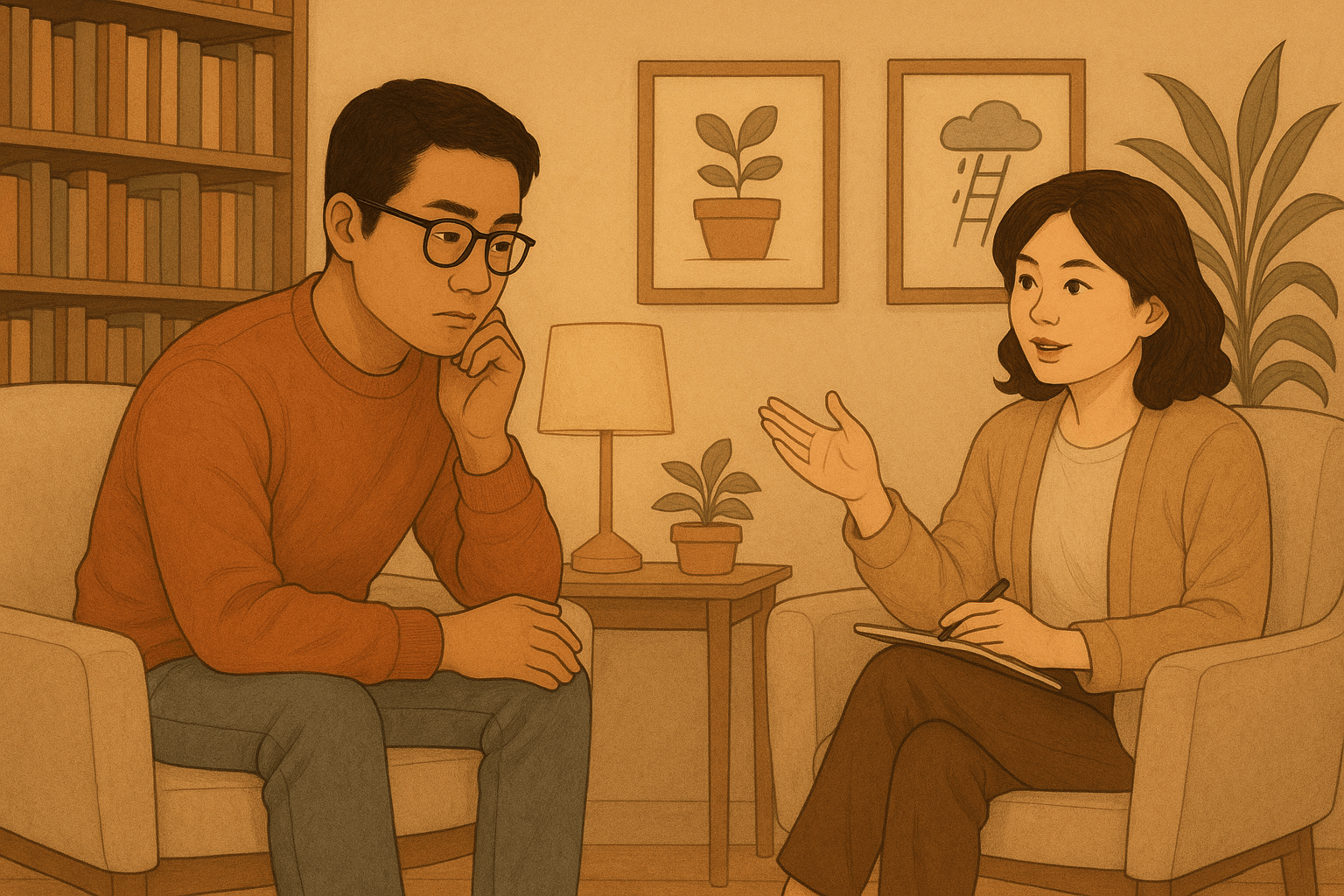Dating Advice That Begins With You: A Therapist’s Guide to Intentional Relationships

Finding genuine connection in the world of dating has never been more complicated—or more full of potential. From swiping fatigue to ghosting culture, many people are left wondering: Is something wrong with me? Or is dating just broken?
The truth is, dating in today’s world isn’t just about chemistry or timing. It’s about self-awareness, boundaries, emotional regulation, and knowing how to communicate your needs. These aren’t traits you were born with or things taught in school—they’re skills you can develop. And therapy can help.
If you’re looking for dating advice that moves beyond clichés and quick fixes, here’s how working on yourself can be the key to finding—and sustaining—healthy love.
1. Start by Building a Relationship With Yourself
Before you can truly connect with another person, you need to understand how you relate to your own emotions. Do you tend to shut down when things get close? Do you chase validation through attention? These patterns don’t just show up in romance—they reflect how you’ve learned to survive emotionally.
Therapists often begin by helping clients identify their attachment styles, emotional triggers, and unhelpful beliefs about relationships. Instead of asking, “Why doesn’t anyone want to date me?” you might start asking, “What kind of connection feels safe for me—and why?”
This shift in mindset is foundational. Rather than dating to fix something or fill a void, you start dating from a place of groundedness and self-respect.
2. Know the Difference Between Standards and Self-Protection
It’s healthy to have standards in dating. But sometimes what we call “preferences” are really protective mechanisms in disguise. For example, you might avoid emotionally available partners because deep down, vulnerability feels unsafe. Or you might chase unavailable people because it reenacts a familiar dynamic from childhood.
This is where therapy becomes more than just conversation—it’s a tool for emotional pattern recognition. One of the most powerful relationship insights you’ll ever receive is this: pay attention to what feels familiar, not just what feels exciting.
Sometimes we confuse intensity with intimacy. Learning to tell the difference takes time, reflection, and often the support of someone trained to help you spot those blind spots.

3. Slow Down—and Let People Show You Who They Are
In a culture that encourages instant chemistry and rapid emotional escalation, slowing down might feel counterintuitive. But taking your time—emotionally, physically, and mentally—helps you tune in to how someone actually treats you over time, not just how they make you feel in the moment.
Ask yourself:
- Are they consistent, or only present when it’s convenient?
- Do they respect your boundaries?
- Can they handle emotional conversations without defensiveness?
One key takeaway from therapist-informed dating advice is that emotional pacing isn’t about playing games—it’s about protecting your peace. The right person won’t rush your process. And the wrong one will reveal themselves if you give it enough time.
4. Work on Communicating, Not Just Attracting
A lot of dating culture focuses on how to look better, sound clever, or seem “chill.” But true relational success depends far more on your ability to express needs clearly and handle uncomfortable emotions with maturity.
Instead of trying to appear perfect, focus on learning how to:
- Express a need without blaming
- Say no without guilt
- Own your feelings without expecting someone else to fix them
Communication skills can be practiced in therapy and applied in real-life dating scenarios. With time, you’ll learn how to speak from your values—not your fears.
5. Endings Aren’t Failures—They’re Feedback
Most dates won’t lead to long-term love. That’s not a failure; it’s information. One of the most empowering shifts therapy offers is helping you reframe rejection.
Rather than spiraling into self-doubt, you can ask:
- What did I learn about my needs in this experience?
- What behavior or dynamic do I want to avoid repeating?
- What values became clearer through this interaction?
Good dating advice doesn’t promise a soulmate around every corner. It teaches you how to walk away with clarity instead of confusion, and how to move on without hardening your heart.

6. Don’t Outsource Your Self-Worth
It’s easy to let the attention (or lack thereof) from others define your worth. But that’s a shaky foundation for any relationship. No one can validate you into long-term self-esteem.
Therapy helps you build a deeper internal compass—one that doesn’t rise and fall with texts, dates, or swipes. That way, even when something doesn’t work out, your sense of self remains intact.
When your value is rooted within, you stop chasing validation and start attracting people who reflect your emotional integrity.
Final Thoughts: Therapy Isn’t a Shortcut—It’s a Support System
Real change in how you date doesn’t happen from reading a few tips—it happens when you commit to understanding yourself, healing old wounds, and growing your emotional resilience.
Working with a therapist offers space to unpack the unspoken stories behind your dating life. Maybe it’s time to stop asking, “Why hasn’t it worked yet?” and start asking, “How can I show up differently this time?”
If you’re seeking dating advice that transforms your patterns—not just your profile—our therapy team is here to help.
Ready to build healthier, more intentional relationships?
Schedule a consultation with us today and take the first step toward dating with clarity, confidence, and emotional strength.